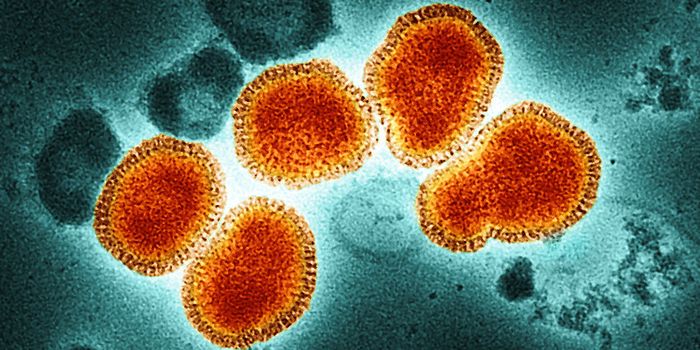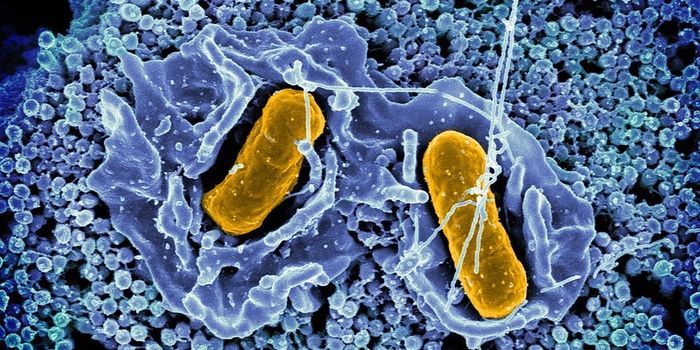Streptococcus gallolyticus promotes colon cancer
Streptococcus gallolyticus (Sg) is a Gram-positive, opportunistic pathogen that can cause bacteremia and endocarditis in humans. Interestingly, people who have been infected with Sg have a higher risk of developing colorectal cancer. Thus, researchers at Texas A&M Health Science Center hypothesized that Sg promotes the growth of these cancer cells.
Image: Shubhangi Ganeshrao Kene/Getty
They started out with a simple experiment to determine if Sg affects how colon cancer cells proliferate. They cocultured Sg or the control bacterium Lactococcus lactis with various colon cell lines. After 24 or 48 hours of incubation, they counted the number of viable colon cells. Sure enough, Sg increased the growth of several colon cancer cell lines, while L. lactis had no effect.
It was possible that Sg simply decreased the apoptosis of colon cancer cells and did not actually increase proliferation. To test this, the researchers measured proliferation with bromodeoxyuridine and observed an increase in the number of cells in S phase when those cells were cocultured with Sg. To validate these findings, they measured cleaved caspase 3 as an indicator of apoptosis. They found no changes in the amount of caspase 3 produced by any cell lines, with or without Sg. Thus, Sg really was causing colon cells to proliferate!
Interestingly, the bacteria had to be in direct contact with the colon cancer cells to promote proliferation. The researchers cultured the colon cancer cells and bacteria with a transwell system. This system allowed secreted bacterial factors, but not bacteria, to contact the cancer cells. When cultured with the transwell, Sg did not induce the cancer cells to proliferate, indicating that direct contact between Sg and the cancer cells is required for this phenotype.
The researchers reasoned that Sg may affect the β-catenin signaling pathway - this pathway helps regulate cell proliferation. They found that Sg increased the amount of activated β-catenin that was translocated into the nucleus of the colon cancer cells, triggering proliferation. Conversely, knocking down the expression of β-catenin prevented Sg-induced proliferation.
Finally, they used a mouse model of colon cancer to validate their findings in vivo. Mice were treated with azoxymethane to induce the growth of colon tumors, and they were infected orally with Sg, L. lactis, or saline. After 24 weeks, the colons were harvested and analyzed for tumor growth. Sure enough, the Sg-treated mice developed more tumors than the control groups.
This report provides the first hard evidence that a bacterium can actively promote the growth of colon cancer cells - in a manner that depends on direct contact and β-catenin. It will be quite interesting to see if this new information affects how this cancer is prevented, diagnosed, and treated!
Sources: PLOS Pathogens and EurekAlert









